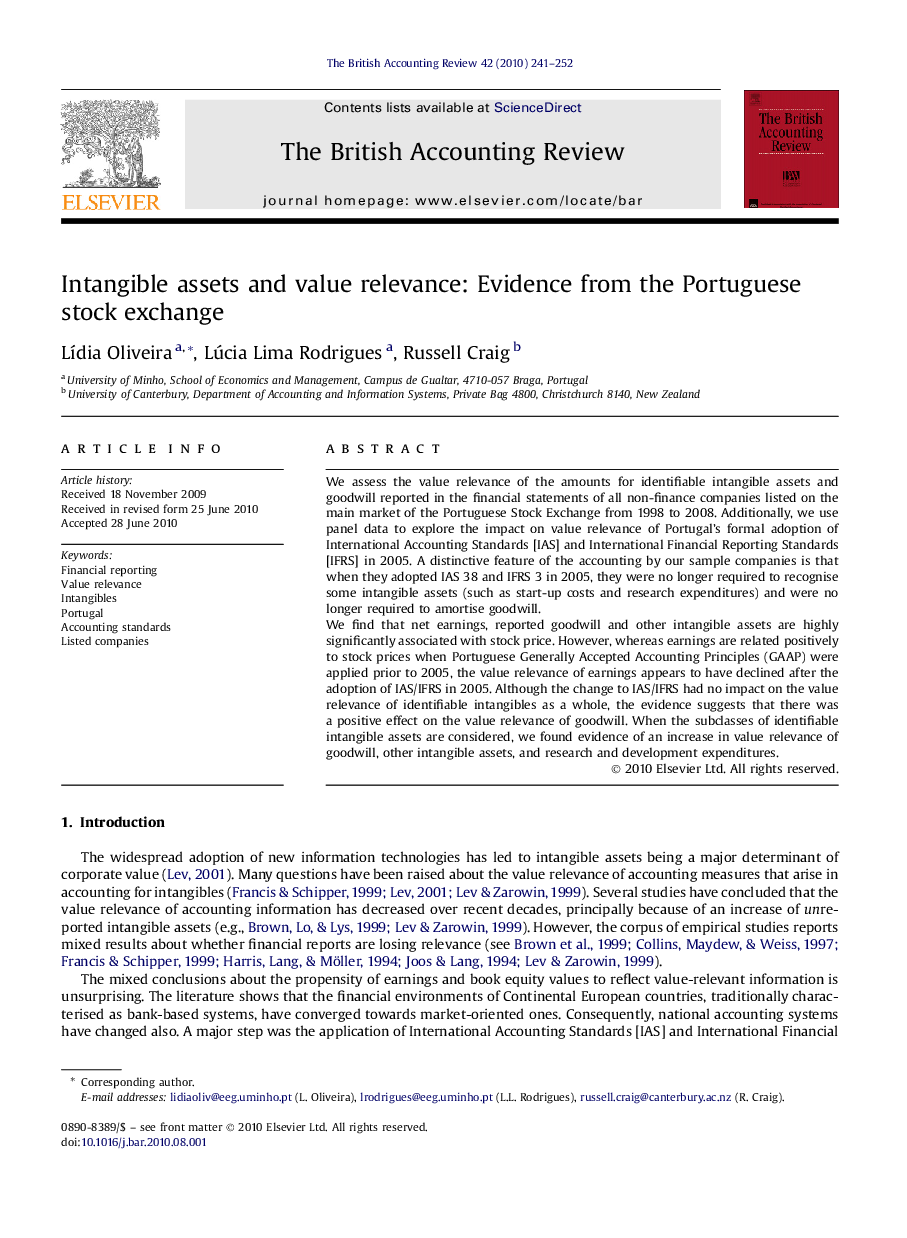| Article ID | Journal | Published Year | Pages | File Type |
|---|---|---|---|---|
| 1004113 | The British Accounting Review | 2010 | 12 Pages |
We assess the value relevance of the amounts for identifiable intangible assets and goodwill reported in the financial statements of all non-finance companies listed on the main market of the Portuguese Stock Exchange from 1998 to 2008. Additionally, we use panel data to explore the impact on value relevance of Portugal’s formal adoption of International Accounting Standards [IAS] and International Financial Reporting Standards [IFRS] in 2005. A distinctive feature of the accounting by our sample companies is that when they adopted IAS 38 and IFRS 3 in 2005, they were no longer required to recognise some intangible assets (such as start-up costs and research expenditures) and were no longer required to amortise goodwill.We find that net earnings, reported goodwill and other intangible assets are highly significantly associated with stock price. However, whereas earnings are related positively to stock prices when Portuguese Generally Accepted Accounting Principles (GAAP) were applied prior to 2005, the value relevance of earnings appears to have declined after the adoption of IAS/IFRS in 2005. Although the change to IAS/IFRS had no impact on the value relevance of identifiable intangibles as a whole, the evidence suggests that there was a positive effect on the value relevance of goodwill. When the subclasses of identifiable intangible assets are considered, we found evidence of an increase in value relevance of goodwill, other intangible assets, and research and development expenditures.
